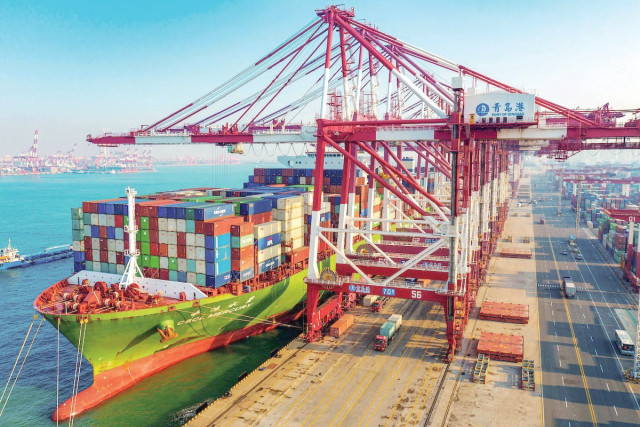Experts urge Pakistan to join RCEP
Partnership will help country to participate in global, regional supply chains

It is important for Pakistan to be part of the Regional Comprehensive Economic Partnership (RCEP) in order to expand the country’s network of free trade agreements (FTAs) and facilitate its participation in the global and regional supply chains, said Pakistan Institute of Development Economics non-resident senior fellow Anabel Gonzalez.
Speaking at an online webinar titled “Pakistan’s Trade Potential and the Regional Comprehensive Economic Cooperation Agreement”, she said RCEP had the capacity to inject new momentum into Pakistan’s export strategy for increasing and diversifying exports.
RCEP is an FTA between the Asia-Pacific nations. Its 15 member countries account for about 29% of the global gross domestic product (GDP).
Shedding light on main features of the RCEP, Gonzalez said the programme was aimed at establishing a modern, comprehensive, high-quality and mutually beneficial economic partnership framework.
“RCEP plans to liberalise and facilitate trade in goods and services, and to create a liberal, facilitative and competitive investment environment in the region,” she added.
Highlighting the risks and opportunities for Pakistan, the expert stated that after participation in the RCEP, Pakistan may suffer potential export losses and face potential investment diversion.
“However, on the other hand, the RCEP can help Pakistan enhance export competitiveness through reduced tariff costs and access to competitive inputs,” Gonzalez underlined. “
Moreover, it will introduce simplicity, transparency and predictability in trade policymaking for Pakistan along with reversing the decline in investment flows by reigniting the reform drive in trade and investment.”
Speaking on the occasion, International Trade and Customs Expert Dr Manzoor Ahmad said for Pakistan to become part of the RCEP, there were two important factors.
“One is that do we have the capacity, which I think is secondary as compared to the question do we have the intention to go there.”
He stated, “Pakistan has locked itself with China, on paper we do have FTAs with Malaysia, Indonesia and other countries but they are just fig leaf.”
The expert stressed that Pakistan should realise that trading patterns had changed, “now there are value chains and for getting into value chains there are important things like rules of origin, value addition, etc”.
Sharing his views, Journalist Hassan Khawar said whether Pakistan chose to be part of RCEP or not, “either way not having the capacity is not an option”.
“There is a glass half full and half empty, when you look at the glass half empty, you realise that your relative market access can suffer, you can lose some of your exports to other countries, you can lose some investments, you may also lose some potential BRI financing,” he said.
“However, on the other hand, of course, there is a glass half full, there is a change in the rules of origin, there is a change in tariff heading rules, etc.”
Giving her point of view, Gonzalez said, “Not having the capacity should not be the driver in the decision-making process, particularly in this area, as it can be developed.”
She said lack of capacity was an issue in developing countries but it could be built with time. About the prospects of India becoming part of RCEP, she said:
“Even though India has an open door, I sense that it is not likely that India will become part of RCEP soon which means there is a window of opportunity for Pakistan.”



















COMMENTS
Comments are moderated and generally will be posted if they are on-topic and not abusive.
For more information, please see our Comments FAQ